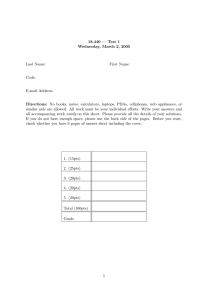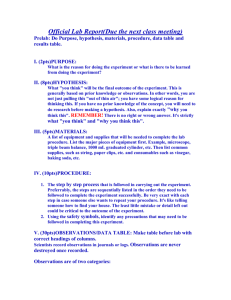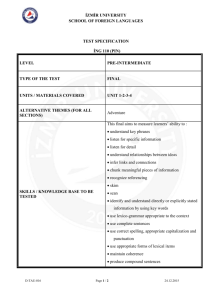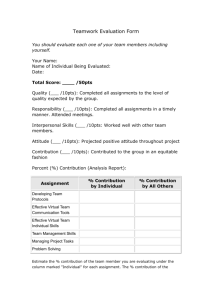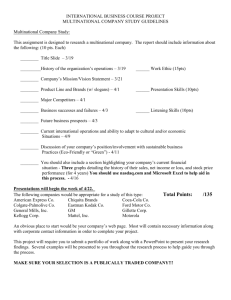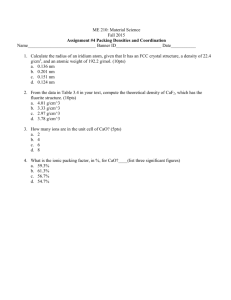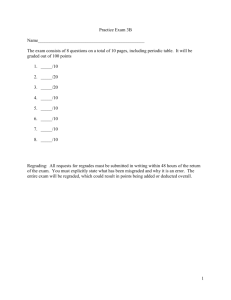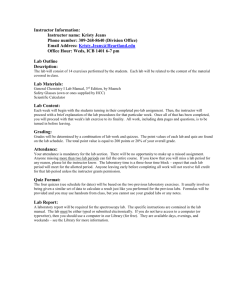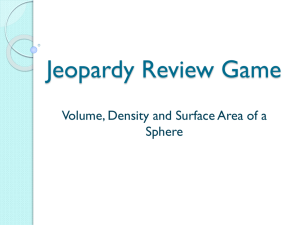WMAN 150: Principles of Conservation Ecology – Online in eCampus
advertisement
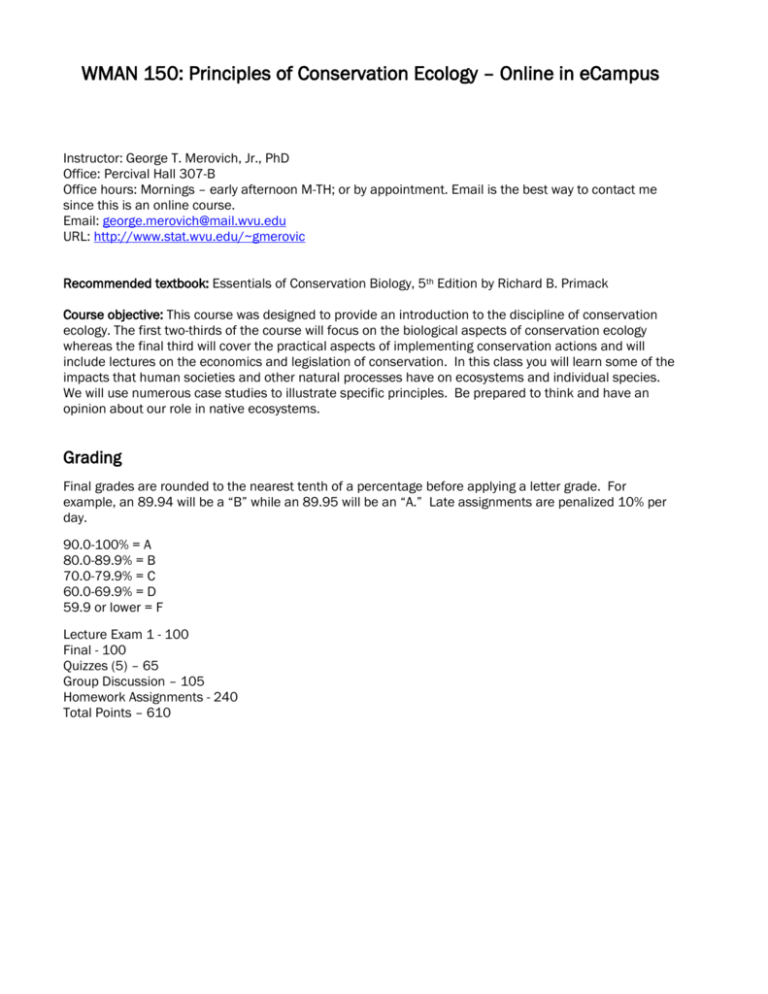
WMAN 150: Principles of Conservation Ecology – Online in eCampus
Instructor: George T. Merovich, Jr., PhD
Office: Percival Hall 307-B
Office hours: Mornings – early afternoon M-TH; or by appointment. Email is the best way to contact me
since this is an online course.
Email: george.merovich@mail.wvu.edu
URL: http://www.stat.wvu.edu/~gmerovic
Recommended textbook: Essentials of Conservation Biology, 5th Edition by Richard B. Primack
Course objective: This course was designed to provide an introduction to the discipline of conservation
ecology. The first two-thirds of the course will focus on the biological aspects of conservation ecology
whereas the final third will cover the practical aspects of implementing conservation actions and will
include lectures on the economics and legislation of conservation. In this class you will learn some of the
impacts that human societies and other natural processes have on ecosystems and individual species.
We will use numerous case studies to illustrate specific principles. Be prepared to think and have an
opinion about our role in native ecosystems.
Grading
Final grades are rounded to the nearest tenth of a percentage before applying a letter grade. For
example, an 89.94 will be a “B” while an 89.95 will be an “A.” Late assignments are penalized 10% per
day.
90.0-100% = A
80.0-89.9% = B
70.0-79.9% = C
60.0-69.9% = D
59.9 or lower = F
Lecture Exam 1 - 100
Final - 100
Quizzes (5) – 65
Group Discussion – 105
Homework Assignments - 240
Total Points – 610
Exams: Exams will test your understanding of the principles covered in class as well as your ability to
translate those ideas and theories to new case studies and situations. The format will be varied and can
include multiple choice, matching, fill-in the blank, short answer, & short essay. Although the exams will
not be strictly cumulative in nature, the structure of this class is such that one topic builds on the next.
Consequently, you should be able to use information that you learned throughout the semester on any
exam.
Discussions, Readings, & Quizzes Throughout the semester you will have a variety of required
discussions and short quizzes. Instructions will be provided for each assignment. Point values vary
depending on the assignment.
Academic Integrity and Dishonesty:
The integrity of the classes offered by any academic institution solidifies the foundation of its mission and
cannot be sacrificed to expediency, ignorance, or blatant fraud. Therefore, we will enforce rigorous
standards of academic integrity in all aspects and assignments of this course. For the detailed policy of
West Virginia University regarding the definitions of acts considered to fall under academic dishonesty
and possible ensuing sanctions, please see the Student Conduct Code at
http://studentlife.wvu.edu/studentconductcode.html. Should you have any questions about possibly
improper research citations or references, or any other activity that may be interpreted as an attempt at
academic dishonesty, please see one of us before the assignment is due to discuss the matter.
Social Justice Statement:
West Virginia University is committed to social justice. We concur with that commitment and expect to
maintain a positive learning environment based upon open communication, mutual respect, and nondiscrimination. Our University does not discriminate on the basis of race, sex, age, disability, veteran
status, religion, sexual orientation, color or national origin. Any suggestions as to how to further such a
positive and open environment in this class will be appreciated and given serious consideration.
If you are a person with a disability and anticipate needing any type of accommodation in order to
participate in this class, please advise one of us and make appropriate arrangements with the Office of
Disability Services (293-6700).
Class Schedule
Module
1
2
3
Topic
Principles of Conservation Ecology Introduction
Introduction to Biodiversity
Patterns and Value of Biodiversity
Graded Assignments
Quiz (10pts.), Analyze Your Ecological Footprint
(5 pts.)
Quiz (15pts.), Group Discussion (10 pts.)
Module #3 Essays (20pts.)
4
Extinction / Reading Scientific Articles
5
6
7
8
Patterns of Extinction
Exam #1 (100pts.)
Climate Change
Habitat Loss and Degradation
Scientific Paper Evaluation (35pts.) {Add 1 pt to
this assignment – rounds things out}
Species Analysis (20pts.)
9
Overexploitation
10
Invasive/Exotic Species
11
12
13
14
15
Environmental Contaminants
Problems with Small Populations
Population Biology
Conservation Genetics
In situ and Ex Situ Conservation
16
Final Exam (100pts.)
Group Discussion (15pts.)
Group Discussion (10pts.), Homework Question
(10pts.)
Group Discussion (30pts.), Homework Question
(30pts.), Quiz (10pts.)
Create your Own Case Study (10pts.), Quiz
(20pts.)
Chemical Presentation (50pts.)
Group Discussion (10pts.), Homework (10pts.)
Problem Set (20pts.)
Group Discussion (15pts.), Quiz (10pts.)
Group Discussion (15pts.), De-extinction Essay
(30pts.)
